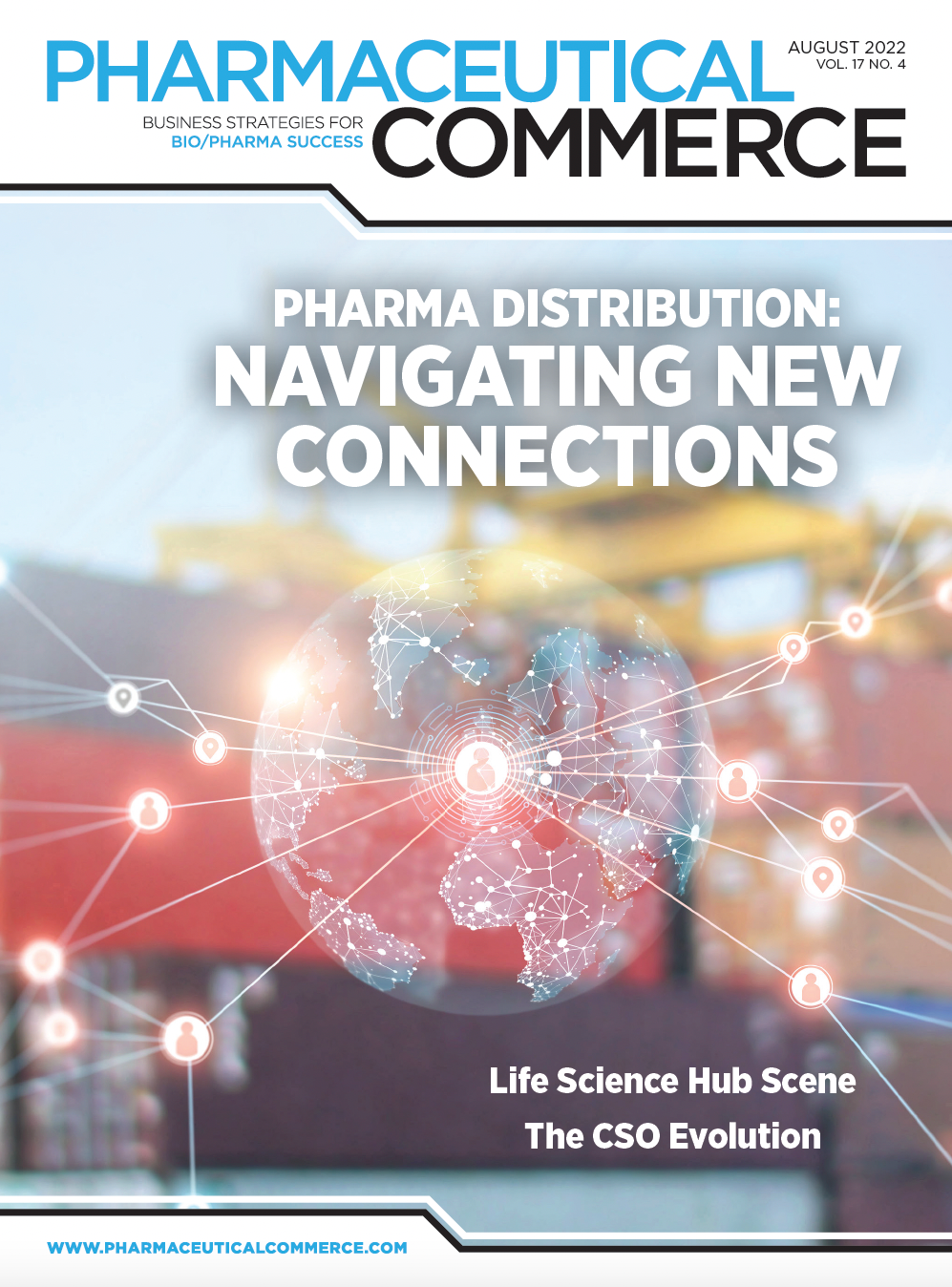A Game Changer for Commercial Insights?
Configuration-driven SaaS, powered by modern data management technology, can enable orphan drug manufacturers to form effective commercial strategies
Software applications tailored to specific business needs—combined with top-notch data management—can boost the commercial effectiveness of life sciences companies. The solutions especially benefit orphan drug manufacturers that need to quickly organize their data to gain valuable insights. They provide a configurable toolbox that helps commercial teams efficiently build data management systems and custom analytics solutions. These applications enable emerging companies to scale quickly and keep up with rapid market changes approaching launch and beyond.
Dan Cardinal

Extracting actionable insights from ever-increasing amounts of data is a common challenge for life sciences companies today. A variety of data management and technology solutions can help commercial teams organize, manage, and learn from their data. Flexible data management feeds into a pre-configured software as a service (SaaS), tailored to address the most pressing aspects of commercial operations. The solution blends best-of-breed algorithms and advanced analytics with commercial operations strategies to deliver superior results. This enables commercial teams to integrate data assets and technology solutions into a single platform, explore the complex relationships between different areas of commercial operations, better collaborate across teams, and uncover new insights.
Melissa McDevitt

Placing data management and analytics on one platform serves as a foundation to efficiently guide commercial decisions and inform end-to-end sales operations—from predicting sales to targeting customers to appropriately sizing and motivating the sales force. Here’s how these types of solutions help energize end-to-end commercial support and provide emerging companies a distinct advantage.
Adopt a new mindset
Dan Wetherhill

Data acquisition can be a significant investment for cash-strapped orphan drug manufacturers. And, alongside this expense comes pressure to properly organize data and integrate it with other data assets to uncover useful insights. Yet, when we surveyed orphan drug commercial leaders, we found that only about half of respondents called their data management efforts “somewhat” successful. Further, only 14% said they were successful to a “great extent.”
In the past, life sciences companies worked in siloes. Each area of commercial operations was handled separately, making it challenging to identify patterns and connections across data. Compounding this challenge, data warehouses often functioned as a “black box”—users couldn’t follow the data in the system and therefore didn’t always trust its outcomes. In addition to these challenges, implementing a data warehouse could be time consuming and expensive.
Too often, companies haphazardly chose off-the-shelf solutions that only solved one problem, didn’t work well together, or fit the overall data management strategy. Complex technology solutions with extra bells and whistles were tempting, but could lead to additional, unnecessary costs—from licensing to maintenance. So, how can commercial teams keep track of their data, collect and store information, and glean valuable insights on patients and physicians?
Commercial teams should shift their mindset toward a powerful, customizable data pipeline combined with configuration-driven SaaS. This solution integrates a company’s data and technology solutions for more informed commercial operations. In fact, the platform can help organize and manage data, as well as extract actionable commercial insights. These highly tailored systems can be built with little to no coding—but companies need to lean on their commercial team’s expertise to ensure proper execution.
Form a one-stop shop for commercial support
Building a single, customized solution can be complicated. First, companies need to form a team with representatives from across the organization to help effectively develop the platform. These include data stewards, business analysts and IT representatives. To build a useful platform, this group must uncover who will use the components of the platform and how they will use them.
This process helps customize the platform to each user group, avoiding unnecessary distractions, eliminating duplication of efforts and better controlling data. The sales force, for example, needs access to applications to record customer interactions, view results of marketing campaigns and reference important information on therapies. The applications should prevent the sales force from inputting duplicate information on their customers or overriding the record without proper processes. Data stewards, on the other hand, need access to the platform’s back-end data’s ingestion processes, and business analysts require access to the data itself in order to run analysis and form useful insights.
Orphan drug manufacturers and other emerging companies often do not have much data prior to product launch. For that reason, it’s crucial to be able to quickly and seamlessly integrate new data sources and data related to new therapies into the company’s technology infrastructure, as it becomes available. Further, life sciences companies, especially emerging ones, need responsive technology platforms to help address fast-changing commercial needs. This flexibility can also help determine a company’s commercial response to market events, such as when a competing product is taken off the market or has a new black-box warning.
A robust and custom CRM system
Let’s take a look at an example of how an emerging life sciences company has leveraged this type of solution to empower sales reps.
We built our proprietary application development platform, Mainsail, specifically for the life sciences industry’s unique data requirements and sales processes. Mainsail is a customizable, modular platform with functionalities designed to assist life sciences commercial teams—from SaaS applications to evaluate new data sources and incentive compensation dashboards to provide access to sales data and reports, manager feedback, and more. Its toolbox of configurable components enables us to build these types of applications efficiently.
We leveraged Mainsail to build a robust and custom CRM system for specialty therapeutics company Bio Products Laboratory (BPL). The company’s Durham, NC-based US division was struggling to realize value from its out-of-the-box CRM system. While the sales team tracked call activity in the system, it couldn’t view this information alongside prescription data, sales data, and field coaching reports. Further, the out-of-the-box system had several extraneous features that the company didn’t use—yet it was paying for anyway.
BPL receives physician and account data from specialty pharmacies and distributors—some weekly, some monthly—all in different formats. Alongside these data deliveries, the sales force would enter call information on the same physicians and accounts. While the out-of-the-box CRM system enabled reps to track their activities, it didn’t allow them to create reports from their data. All reporting was done outside of the CRM system. Due to limitations with the platform, BPL’s sales reps were unable to uncover valuable insights and instead used the system only to enter calls. Further, the platform lacked quality controls for the data, leading to duplicate account information and inaccuracies. BPL’s sales team needed a CRM system tailored to the life sciences industry that could integrate the company’s sales data and call information. The team wanted a one-stop solution that included a comprehensive view of target physicians, affiliation information, call activity and prescription data.
To address these needs, our team first tackled BPL’s existing data management challenges. We extracted data from BPL’s existing CRM system. Then, we cleaned the data, put the data in a uniform format, and created the most up-to-date, accurate universe of physician data. After launching the new, Mainsail-based CRM system, we maintained an active role in BPL’s master data management. We monitor, clean, and update data in the system on an ongoing basis to ensure BPL has an up-to-date database of customer and sales information that it can easily reference.
Second, we proactively prevented “bad data” from entering the system. Validations within Mainsail prevent users from inputting duplicate or inaccurate data. For example, users can’t enter ZIP codes outside their territories. Mainsail also requires users to put in a complete set of demographic information. Reps can no longer input information for targets without last names or office locations, for instance. By forcing users to enter complete information, Mainsail protects the integrity of BPL’s data.
The flexibility of the platform enables us to add custom data processing and additional functionality to the portal, including non-CRM capabilities. BPL’s platform includes interactive maps of physician locations, a reference document repository with incentive compensation documentation, specialty pharmacy rep rosters, Mainsail user guides and CNE request forms. Non-CRM functionalities include a “time-off-territory” portal that routes time-off requests through the appropriate manager approvals and the ability to capture and house field coaching reports. The field force can view the single, navigable platform on either a browser or an iOS app to easily manage important aspects of their operations.
For BPL, overall engagement with the new Mainsail platform exceeded engagement with its previous CRM solution. Field reps and headquarters improved their understanding of sales force performance in individual territories and gained a more holistic perspective of their customers. Ongoing data management ensures users see accurate, up-to-date data and have confidence in the platform and its outputs. The user-friendly platform gives the sales team a tool it can access and navigate effortlessly. BPL uses this CRM solution to enhance its sales efforts.
Build an agile solution to adapt to the growing technology landscape
There are hundreds of technology solutions—CRM, forecasting, roster management, and business intelligence—to solve nearly every challenge that a commercial team will face. And as new data and technology enter the market, it’s important for life sciences companies—especially orphan drug manufacturers—to incorporate this new technology into their existing systems. That’s why they need to carefully select a platform that will work for them not only now, but in the future.
With every innovative technology feature added to a system, companies need to be that much more strategic about which technology they adopt and how they integrate and deploy it. Ultimately, those that adopt a platform that integrates a wide range of commercial activities will better achieve their objectives. A comprehensive solution that combines well-engineered data pipelines with highly configurable SaaS applications can lead to greater use and engagement, increased productivity and efficiency, greater cross-functional collaboration, and improved data quality.
A flexible platform enables integration into the overall ecosystem, paving the way for growth and success. This includes explosions of data, advanced technology solutions and efficient sales operations—all for a more promising commercial future.
About the Authors
Dan Cardinal, Melissa McDevitt, and Dan Wetherill are partners at Beghou Consulting.

Newron, Myung In Pharm Form Partnership Centered Around Treating Schizophrenia in South Korea
January 14th 2025The license agreement will feature an upcoming Phase III trial and—depending on results—the development, manufacturing, and commercialization of evenamide as a potential treatment option.